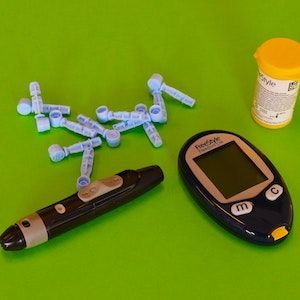Sotagliflozin Improved Glycemic Control, Reduced CV Events in Patients with T2D
Sotagliflozin reduced HbA1c by 0.42% and heart failure by 32% in comparison to placebo.

Although recent Phase 3 study data have assessed the efficacy of sotagliflozin in patients with type 2 diabetes (T2D), the entirety of outcome data has not been systematically reviewed, leading to a new review and meta-analysis on efficacy and safety of sotagliflozin in this patient population.
The team of investigators, led by Ioannis Avgerinos, MD, Clinical Research and Evidence-Based Medicine Unit, Aristotle University of Thessaloniki, observed a reduction in blood glucose, body weight, and systolic blood pressure with sotagliflozin use, showing overall benefit on heart failure and myocardial infarction.
Methodology
Within the study parameters, investigators searched Medline, Embase, and the Cochrane Library until August 2021.
Inclusion criteria included randomized controlled trials (RCTs) with an ≥8 week treatment duration that compared sotagliflozin to placebo or other antidiabetes agent in the patient population with T2D.
In all outcomes, investigators extracted data for once-daily sotagliflozin 200 mg and 400mg. The primary efficacy outcome consisted of the change in HbA1c from baseline, while secondary efficacy outcomes included change in body weight, systolic blood pressure, and diastolic blood pressure.
They observed 15 safety outcomes, including serious adverse events, all-cause mortality, heart failure, and stroke.
In the meta-analysis, the team synthesized efficacy outcomes through weighted mean differences (WMD) and 95% confidence intervals (CI), as well as odds ratios in safety outcomes.
Avgerinos and colleagues noted that efficacy outcomes utilized data from RCTs with treatment duration of ≥12 weeks, while safety outcome data came from trials with duration of ≥8 weeks.
Outcomes
The systematic review included 11 trials with 16,411 patients. Data show patients had a mean HbA1c at baseline of 8.2%, mean systolic blood pressure of 135.6 mmHg, and mean age of 62.9 years.
In the analysis, sotagliflozin reduced HbA1c by 0.42% (95% CI, -0.56 to -0.29) in comparison to placebo. They found no difference in comparison to other antidiabetic agents, including empagliflozin and glimepiride.
Further, in a dose-dependent subgroup analysis, investigators observed both 200mg and 400mg of sotagliflozin reduced HbA1c level in comparison to placebo.
This was noted regardless of trial duration (WMD -0.48%; 95% CI, -0.72 to -0.25, 5 studies <52 weeks; WMD -0.35%, -0.53% to -0.17, 4 studies <52 weeks).
In terms of secondary efficacy, data show treatment with sotagliflozin reduced body weight by 1.33 kg (95% CI, 1.57 - 1.09). Compared to placebo, sotagliflozin reduced systolic blood pressure by 2.44 mmHg (95% CI, 2.18 - 2.07) and diastolic blood pressure by 0.81 mmHg (95% CI, 0.56 - 1.06).
Further, investigators observed sotagliflozin reduced incidence of heart failure by 32% (OR 0.68, 95% CI, 0.58 - 0.79) and myocardial infarction by 28% (OR 0.72, 95% CI 0.54 - 0.97), but neutral effect on all-cause mortality, cardiovascular mortality, and stroke.
They noted sotagliflozin treatment was safe regarding adverse events (OR versus placebo, 0.90, 95% CI, 0.83 - 0.97).
Takeaways
As a takeaway, sotagliflozin treatment showed improvement in glycemic control, body weight and blood pressure in patients with T2D, without serious adverse events. Moreover, sotagliflozin reduced CV events, including heart failure and myocardial infarction.
“Future trials should further explore its comparative effectiveness against other antidiabetic drugs, and verify its long-term beneficial effect on cardiovascular outcomes, given the early stop of the dedicated cardiovascular outcomes trials,” investigators wrote.
The study, “Sotagliflozin for patients with type 2 diabetes: a systematic review and meta- analysis,” was published online in Diabetes, Obesity and Metabolism.